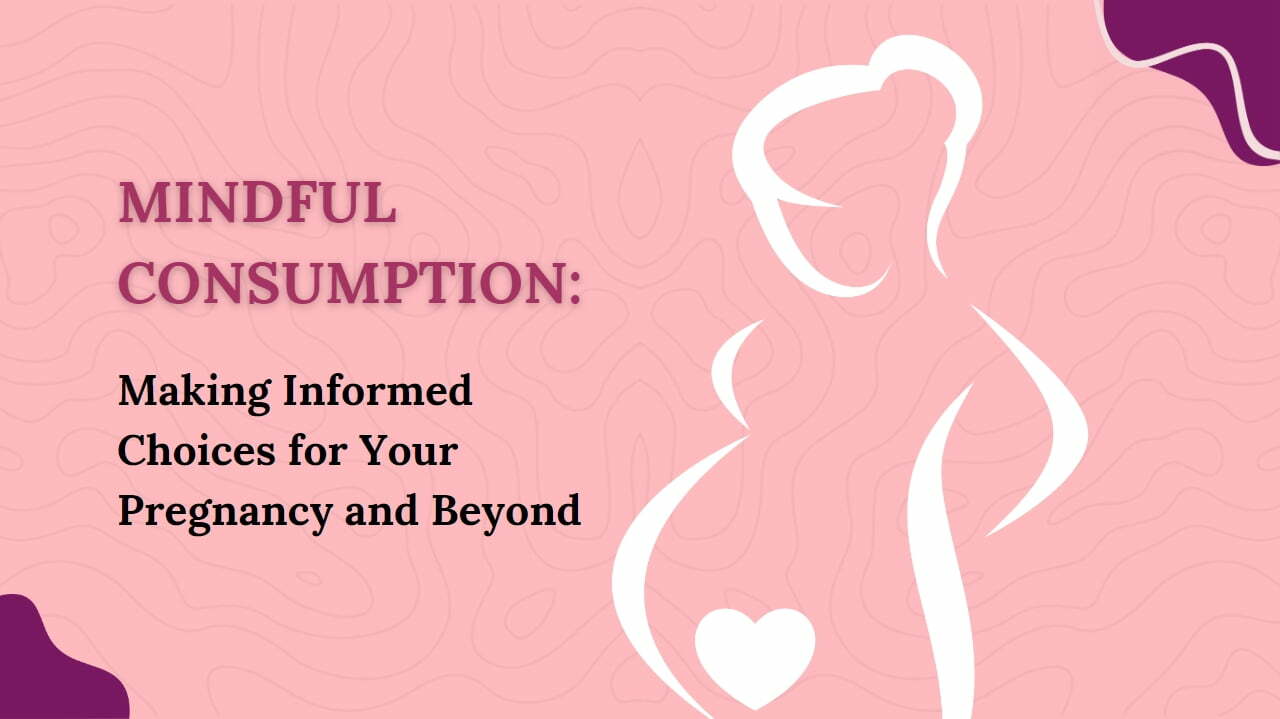



Bringing a child into the world is an amazing journey full of excitement and joy. As a pregnant woman, you want to make the best decisions for both you and your unborn child. Mindful eating is one area in which you can make a significant difference. You can build a healthier and more sustainable environment for yourself and your child by making wise decisions about the items you use now and in the future. Today we will discuss mindful consumption and offer helpful advice to assist you in making thoughtful choices as you navigate this changing time.
Understanding Mindful Consumption:
Making decisions that are consistent with our beliefs entails being conscious of the effects that the items we use have on the environment, society, and our health. It entails taking into account both the short- and long-term effects of our consuming habits. Adopting attentive consumption habits throughout pregnancy can be quite advantageous for both you and your child.
1. Choose Organic and Natural Products: Your body changes throughout pregnancy, so it's important to be careful about the items you expose yourself to. Choose natural and organic products instead, including food, cleaning supplies, and products for your skin. To be sure the items are free from dangerous chemicals and pesticides, look for certificates like "USDA Organic" or "Non-GMO Project Verified". You lessen your exposure to potentially dangerous compounds and help promote sustainable farming methods by choosing organic foods.
2. Prioritize Sustainable Maternity Wear: You'll require functional apparel that can support your increasing tummy as your body develops and changes. Think about making a purchase of ethical and environmentally friendly pregnancy clothing manufactured from recycled or organic materials. Look for companies that prioritise ethical manufacturing and fair trade. By endorsing such products, you promote a more environmentally and socially responsible fashion sector while also improving worker and environmental welfare.
3. Mindful Nutrition: A healthy pregnancy depends on eating a balanced, wholesome diet. Limit your consumption of processed and packaged foods and choose fresh, natural foods instead. To lessen your carbon impact and assist regional farmers, choose produce that is locally produced. If at all possible, think about starting a garden or enrolling in a community-supported agriculture (CSA) programme. In addition, watch out for the fish you eat because some species may be high in mercury. For advice on safe and appropriate dietary practices during pregnancy, speak with your healthcare professional.
4. Research Baby Products: The number of options available for baby items can be confusing. Spend some time researching so that you may decide with knowledge. Look for products that don't include dangerous substances like phthalates, BPA, and parabens. Choose organic cotton or bamboo baby clothes since they are softer and gentler on your baby's fragile skin. To avoid waste and save money, think about borrowing from friends and family or buying used products.
5. Reduce, Reuse, Recycle: Reducing, reusing, and recycling waste can have a big influence on the environment. Think about repurposing or borrowing products from others rather than purchasing new ones. Pick reusable items like glass baby bottles, washable nursing pads, and cloth diapers. When at all feasible, recycle packaging and materials, and appropriately dispose of hazardous garbage.
Adopting mindful consumerism is a powerful method to improve your health, the environment, and society at large, both during and after pregnancy. You can create a healthier and more sustainable environment for yourself and your child by being conscious of the goods you use, choosing sustainable and organic solutions, and developing a reduce-reuse-recycle mindset. Always keep in mind that every thoughtful decision you make will help to create a better and more conscious future for your expanding family.